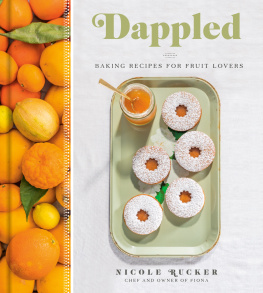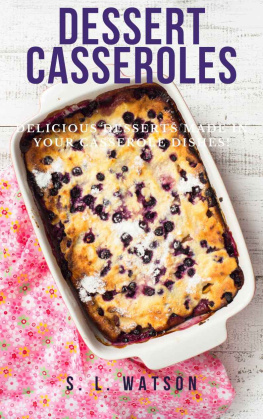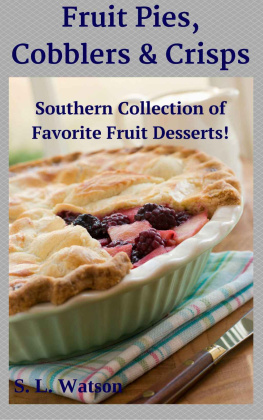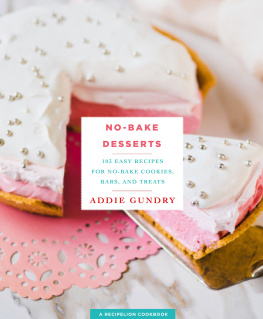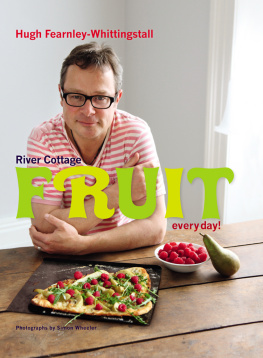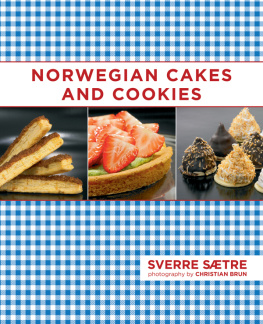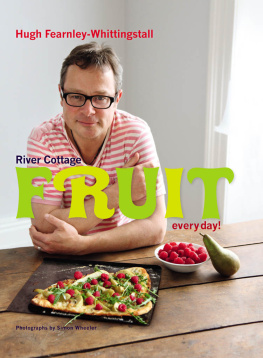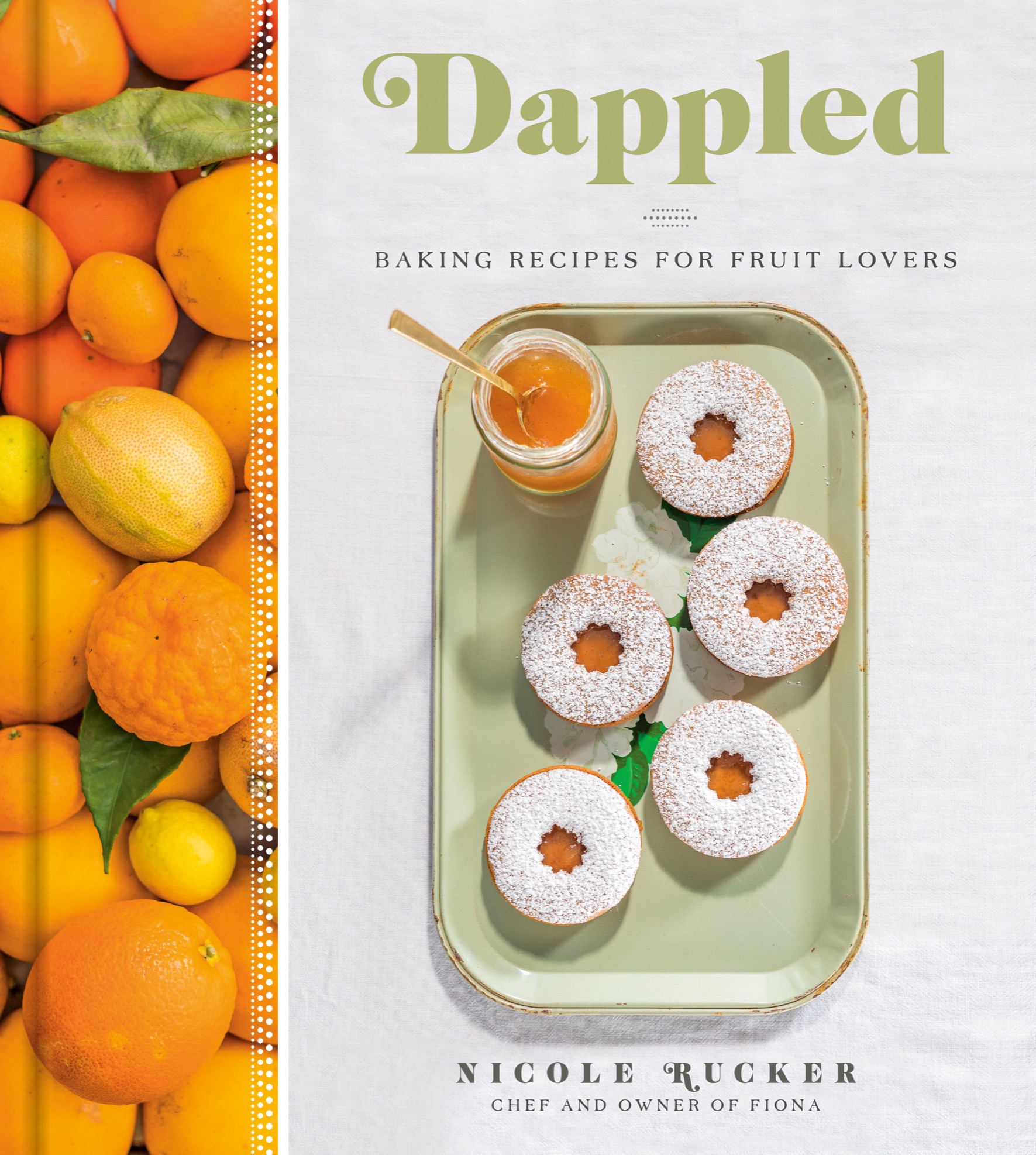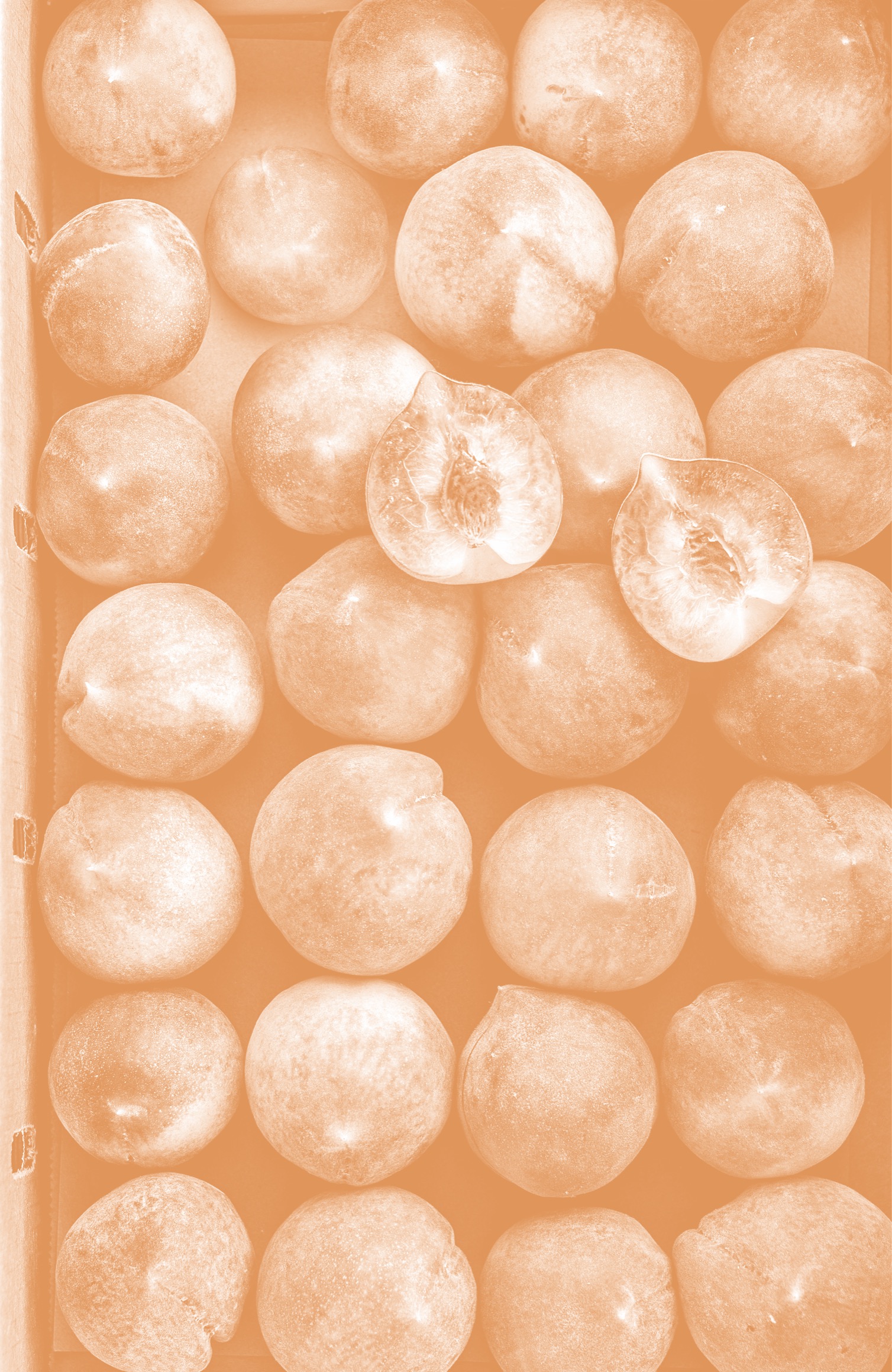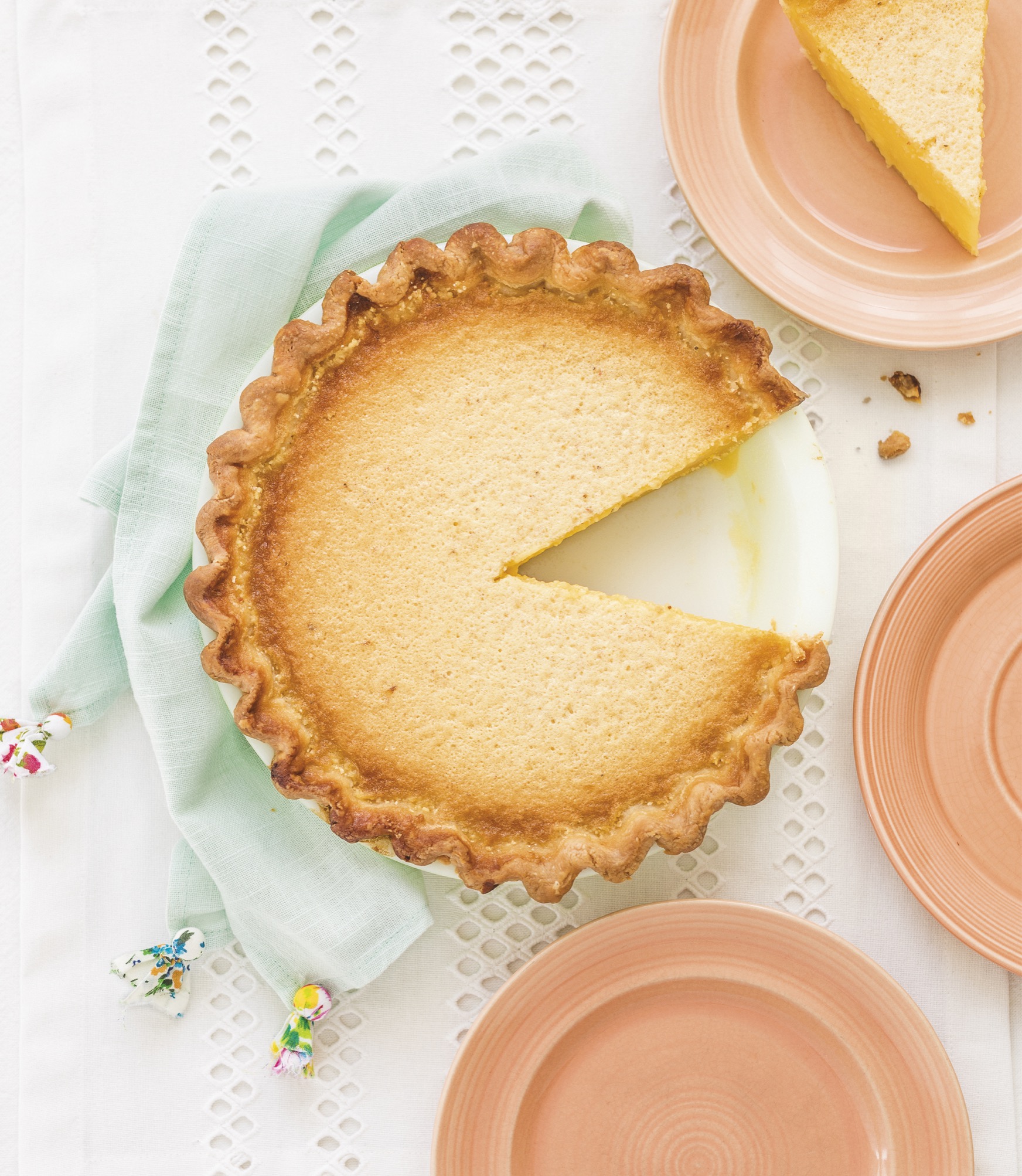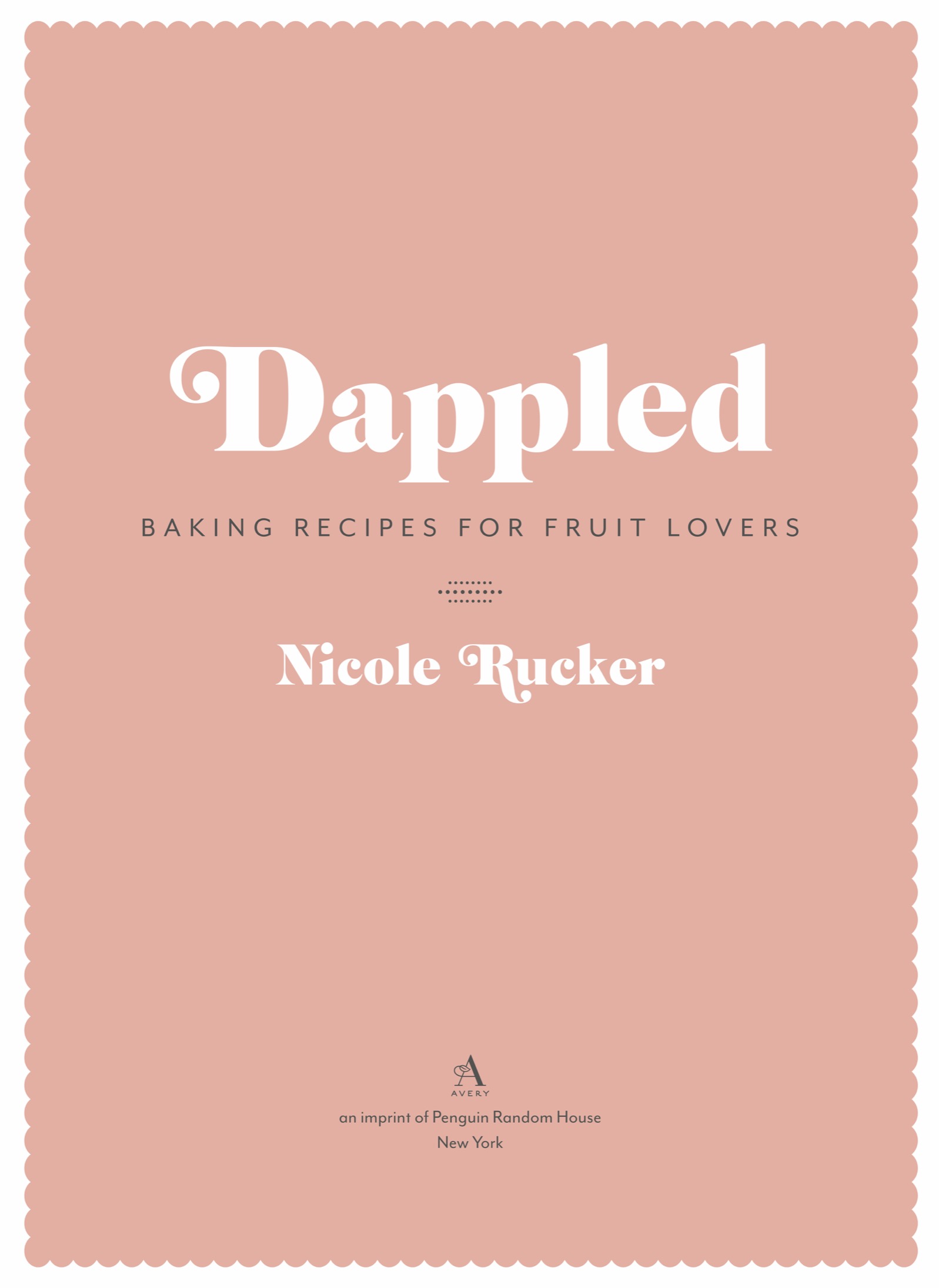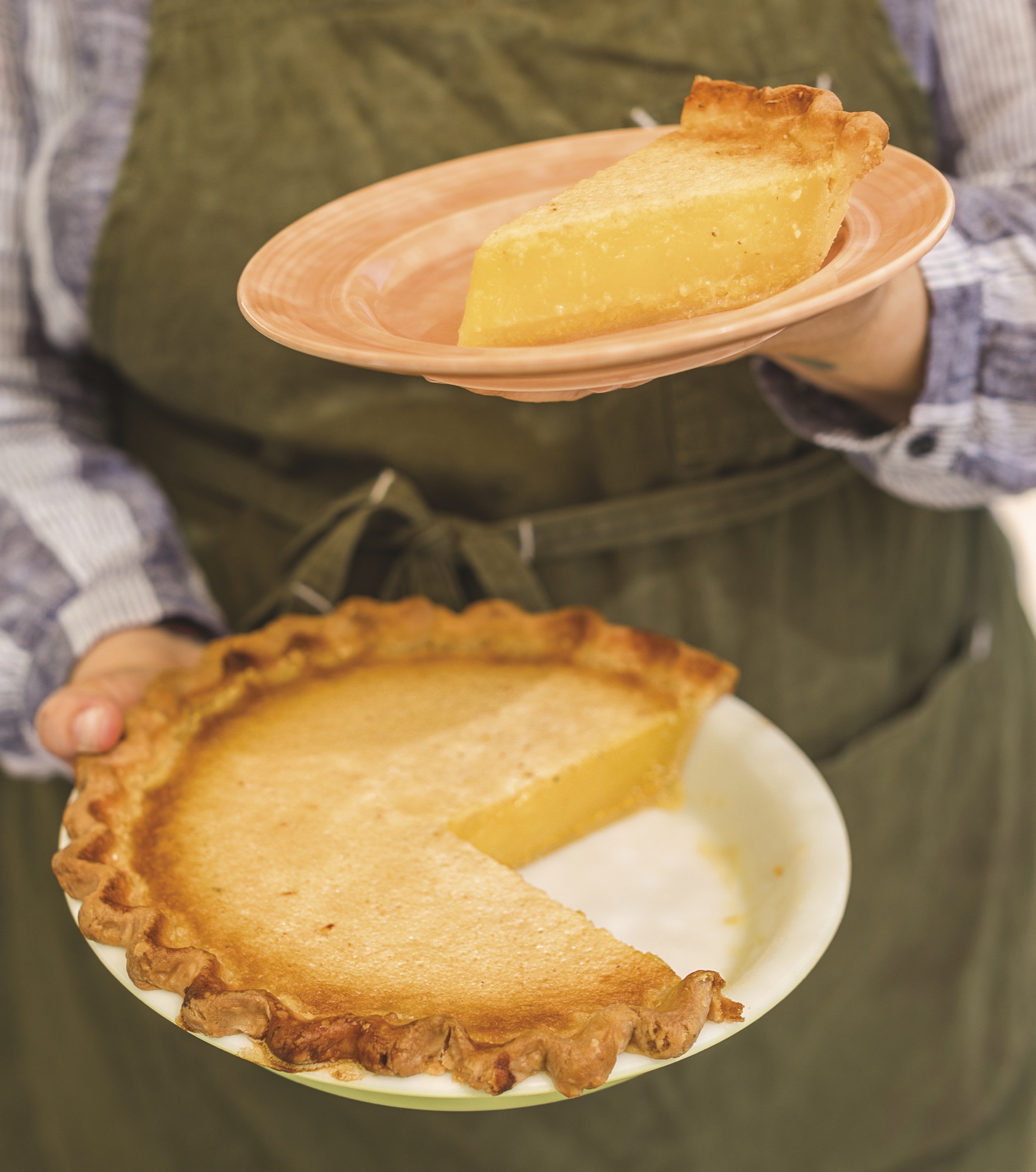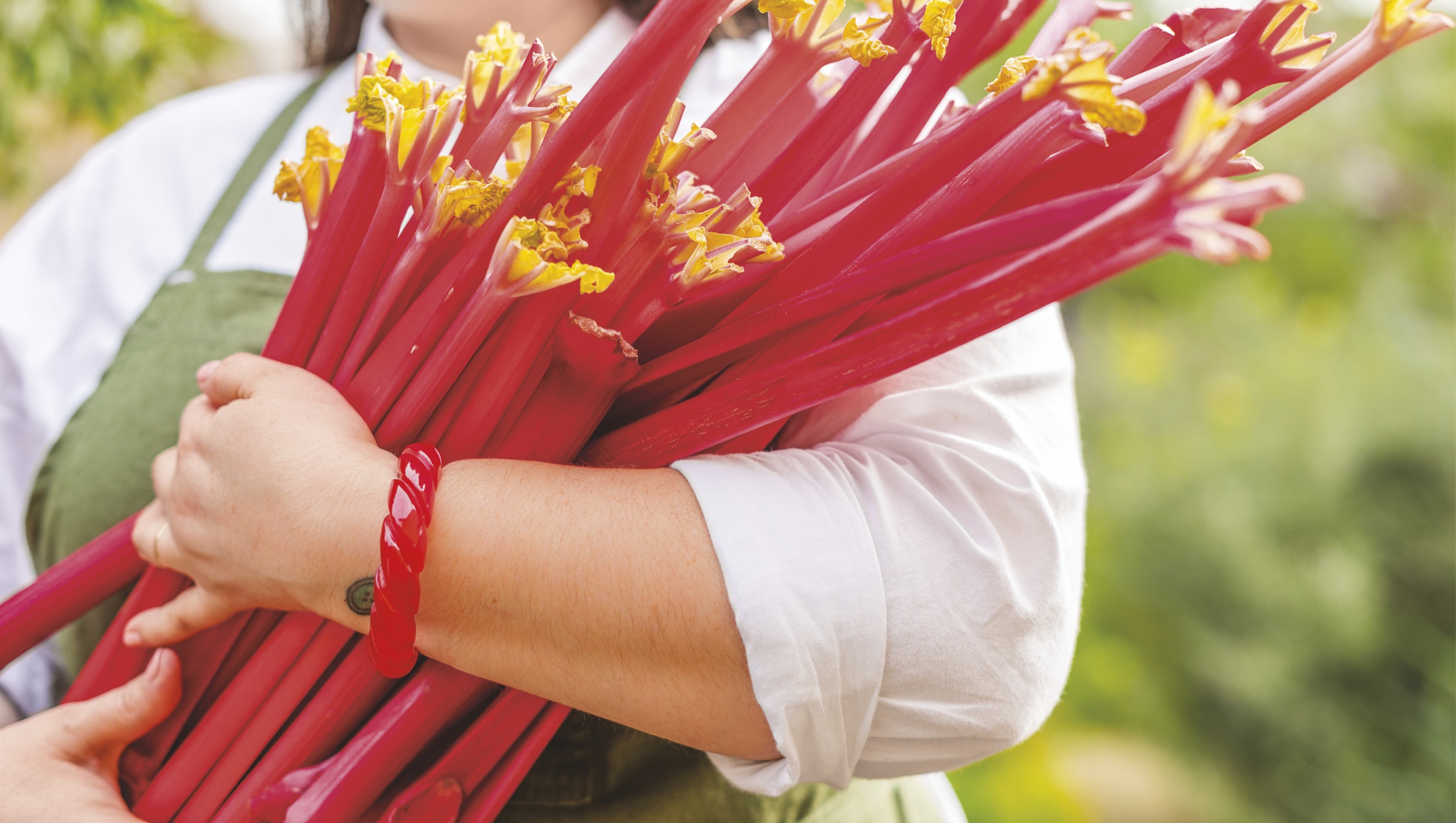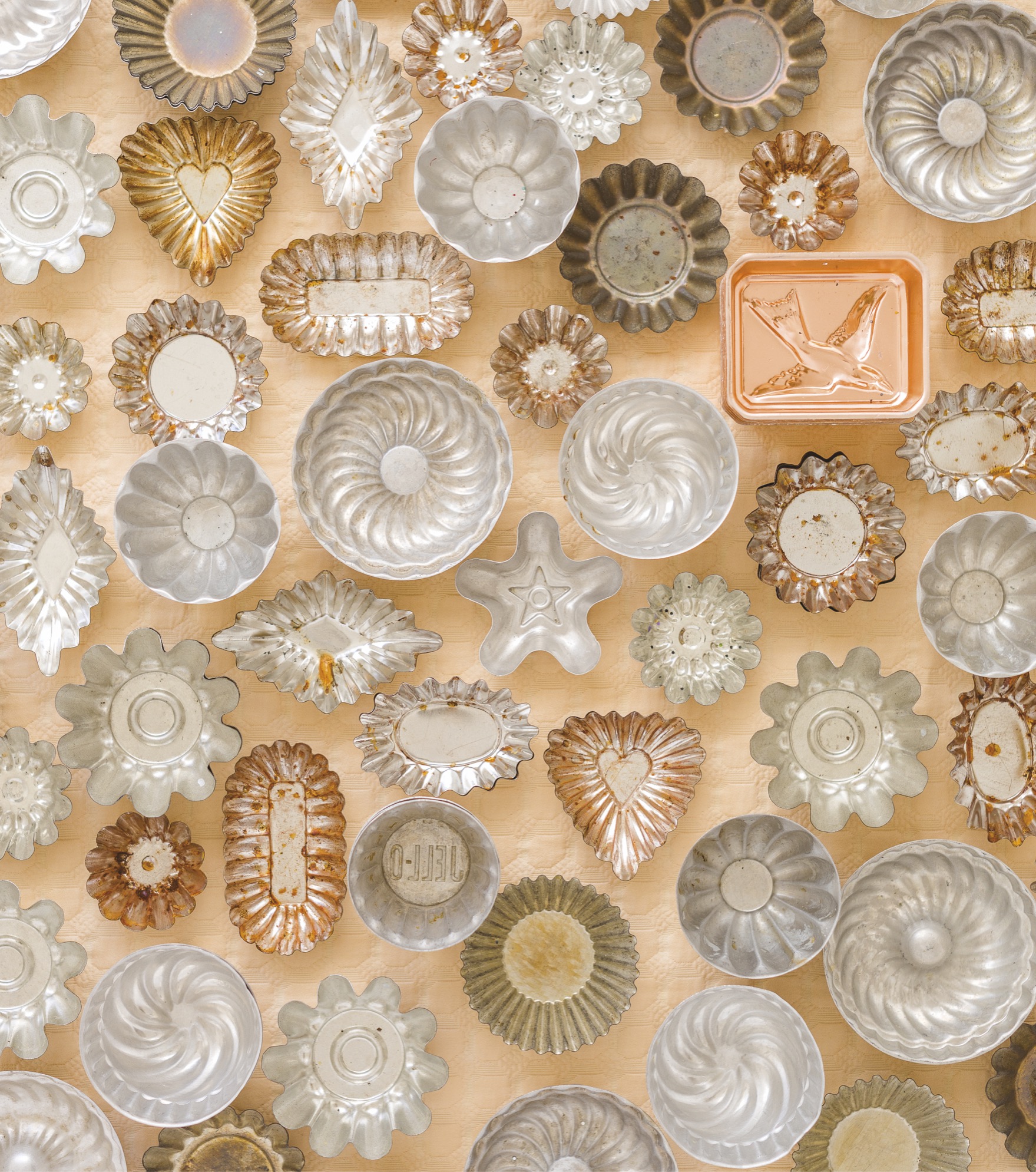
an imprint of Penguin Random House LLC
penguinrandomhouse.com

Copyright 2019 by Nicole Rucker
Photographs copyright 2019 by Alan Gastelum
Penguin supports copyright. Copyright fuels creativity, encourages diverse voices, promotes free speech, and creates a vibrant culture. Thank you for buying an authorized edition of this book and for complying with copyright laws by not reproducing, scanning, or distributing any part of it in any form without permission. You are supporting writers and allowing Penguin to continue to publish books for every reader.
Library of Congress Cataloging-in-Publication Data
Names: Rucker, Nicole, author.
Title: Dappled : baking recipes for fruit lovers / Nicole Rucker.
Description: New York : Avery, an imprint of Penguin Random House, [2019] | Includes index.
Identifiers: LCCN 2018058468| ISBN 9780735218017 (hardcover) | ISBN 9780735218024 (ebook)
Subjects: LCSH: Desserts. | Cooking (Fruit) | Baking.
Classification: LCC TX773 .R84 2019 | DDC 641.86dc23
LC record available at https://lccn.loc.gov/2018058468
p. c.m.
The recipes contained in this book are to be followed exactly as written. The publisher is not responsible for your specific health or allergy needs that may require medical supervision. The publisher is not responsible for any adverse reactions to the recipes contained in this book.
Neither the publisher nor the author is engaged in rendering professional advice or services to the individual reader. The ideas, procedures, and suggestions contained in this book are not intended as a substitute for consulting with your physician. All matters regarding your health require medical supervision. Neither the author nor the publisher shall be liable or responsible for any loss or damage allegedly arising from any information or suggestion in this book.
Version_1
For Blaine Rucker, my tolerant, loving, and brilliant husband
CONTENTS
Introduction
Once when I was a little girl, maybe seven years old, I was left to roam in my grandparents garden while the adults prepared Sunday lunch. I remember noticing the perfect cherry tomatoes cascading on vines, the leaves glowing with sticky essential oils. They called to me, and I responded by grabbing them two at a time and gobbling them up, replaying that hedonistic call and response until I had eaten everything within arms reach. I vaguely remember a seed of knowledge planting in my tiny brainthe realization that there were things, outside things, that I could eat. I simply had to find them.
That day, the whole yard came into focus and I began to search for anything I could eat. I didnt have to wait for some grown-up person to wash, cut, or cook. I could graze there as long as I was left alone to forage.
This was the start of my obsession with fruit. I was a hungry child with a good imagination, and I made a game out of finding anything free and edible. My sister, Tracy, and I cased entire neighborhoods, planning our walk to school around front yards with tangerine or lemon trees, patches of Oxalis flowers (sour grass), and landscaping with wild strawberries as ground cover. Sometimes we didnt even eat the things we foraged; we were just proud that we were able to find them. We collected kumquats like junk hoarders, usually leaving them on a bench or sidewalk later that day for someone else to notice.
Occasionally food was scarce in our house. This could be one more reason I started making note of alternate sources of food outside of the kitchen. If we had nothing in the cupboards, I felt more secure knowing that I knew where to find avocados beyond the grocery stores produce aisle. If we needed to find food, I could find it. I played kitchen, the way all little kids do, with pretend tea parties and restaurants. I loved watching the adults cook, and stuck close to them to begin collecting recipes and techniques.
When I was a teenager, and a latchkey kid, I spent a lot of my afternoons drawing and daydreaming in the backyard of our house. I had been baking banana bread and Nestl Toll House cookies for years, but Id become fixated on the fruits growing in the backyard that my mom didnt have time to care for and enjoy. I harvested apricots, plums, and warm-weather apples from that yard. I became enraptured by the peach tree in the corner of the lot, and the green beetles that buzzed around it and me as I picked what fruit I could save from the birds and other creaturesthose that owned the tree more so than myself. I think we lived in that house only two years. I was sad to leave the trees behind. I didnt bake a peach pie until I was in my twenties.
I credit my grandparents on my mothers side for teaching me the basics of eating and cooking. I can picture my grandpa John gathering hot peppers and tomatoes from the garden and bringing them to the kitchen, to my grandma Camille, where she charred their skins over the flame on the stove. The smell of the peppers is so vivid as a memory, it makes my heart swell just writing this. She then placed the blackened things in a bowl and covered them with plastic wrap to sweat some of the char off before making a salsa. Grandpa grew it, he brought it inside, she transformed it. There was a comforting rhythm in those steps that I would crave to reenact as I became an adult.
I went to art school and studied photography. I began making cakes and cookies for friends. I took pictures of the cakes I made, obsessed with documenting my creations. I spent more time in the art school caf than I did in the darkrooms. (For many years, the San Francisco Art Institute had one of the best college cafs in the country.) One day I spent my last two dollars on an Elberta Peach and had another wide-eyed moment with a piece of fruit that threw the future into focus. I realized I liked making cakes better than taking pictures of them and decided to become a baker.
I read every book I could afford on baking and pastry. Once I began working in restaurants, I learned that market day was the best day, like Christmas each week, but the day before market day was the most important test of your talent. Did you have enough berries to get through service? Had you overordered expensive plums, their once-taut skins now showing the wrinkles of over-ripeness? What about the broken and bruised figs? Could you turn them into something delightful?

